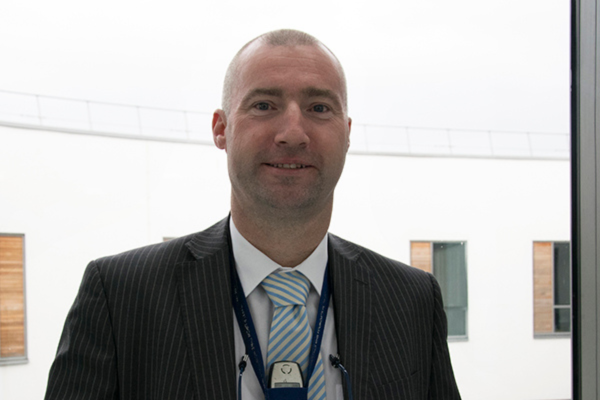A clinical trial led by Newcastle Hospitals has helped inform recent changes to national NHS guidelines.
Urinary tract infections (UTIs) are very common and can cause pain or a burning sensation when peeing, needing to go to the toilet more often, and lower tummy or back pain.
Over half a million women in England have recurrent UTIs (rUTIs), defined as at least three repeated infections per year or two in six months.
UTIs can be treated with antibiotics but they are not always effective for patients who have recurring infections. There is also a growing need to find alternatives to antibiotics as cases of antibiotic resistance rise.
UK-wide trial
The ALTAR trial, led by Professor Chris Harding, consultant urological surgeon at Newcastle Hospitals, aimed to determine if a drug called methenamine hippurate was as effective as antibiotics for treating rUTIs. The trial was funded by the National Institute for Health and Care Research (NIHR).
Methenamine hippurate works by sterilising urine, stopping the growth of certain bacteria. Previous studies showed that it could be effective in preventing UTIs, but further evidence was needed.
The trial involved 240 patients across eight UK hospitals who were randomly allocated to take either methenamine hippurate, taken twice daily for 12 months, or an antibiotic taken daily for 12 months.
Results of the trial showed no differences in most outcomes for participants randomised to take methenamine hippurate when compared with the daily antibiotics group.
The findings led to the National Institute for Health and Care Excellence updating their guidance to reflect that methenamine hippurate can be an effective alternative to daily antibiotics for recurrent UTI in women.
Comprehensive evidence
Professor Harding, who was chief investigator for the trial, said:

“While UTIs are common and usually treatable, for some patients they can be incredibly difficult to live with and can impact on quality of life, especially if they are occurring frequently.
“Previous research found that methenamine hippurate might be effective in preventing UTIs, however there was little evidence to support this.
“The results of the ALTAR trial mean there is now comprehensive evidence to guide conversations between doctors and patients when discussing treatment options for recurrent UTIs.”
“Living with constant worry”
71-year-old Gillian Alderson from Gateshead spent the best part of ten years with recurrent UTIs.
The retired retail manager, who is now a busy grandma of two grandchildren, says UTIs impacted her quality of life, and she was frequently prescribed antibiotics.
“Every time I went out, I was planning where the nearest toilet was and living with constant worry that I would be caught short.
“Recurrent UTIs really impacted my ability to enjoy life. I was coming up to retirement and wanted to make the most of it, especially with having grandkids to keep me busy!”
Gillian’s consultant, Prof Harding, told her about the opportunity to take part in the ALTAR trial. She was randomised to the group of patients who would receive methenamine hippurate.
“I was keen to take part in the trial because, even if it didn’t help me, it could help someone else suffering from UTIs.
“My experience of taking part in the trial was really positive. The medication I received meant I didn’t have a UTI for the time I was taking part, which was brilliant.
“It’s great to see that something I took part in could help to make a difference to people suffering from recurrent UTIs in the future.”
Since being on the trial, Gillian has had a procedure at the Freeman Hospital which involves injecting Botox into the bladder to help manage bladder overactivity.
The 30-minute procedure helps muscles to relax, giving people more time to get to the toilet when they need to. She credits the procedure with giving her a new lease of life and is now enjoying a busy but fulfilling retirement.
Huge difference to patients
Prof. Harding, who is also a professor of urology at Newcastle University, added:
“My thanks go to all patients who took part in the ALTAR trial, and the research team at the Freeman Hospital who were key to setting up and running the trial.”
Professor Anthony Gordon, programme director for the NIHR Health Technology Assessment (HTA) programme, which funded the trial, said: “
“More than half a million women suffer from recurrent UTIs, which can be a painful and chronic condition. NICE recognising this new treatment as an alternative to existing antibiotic treatments will make a huge difference to these patients’ quality of life.
“This shows the value of investing in high quality, publicly funded research to benefit patients and practice and ensure the best use of NHS resources. We must use antibiotics wisely to tackle the global threat of antimicrobial resistance.”
- Results of the ALTAR trial were published in the British Medical Journal in 2022
